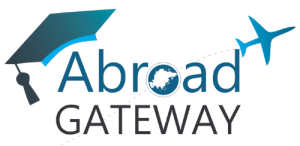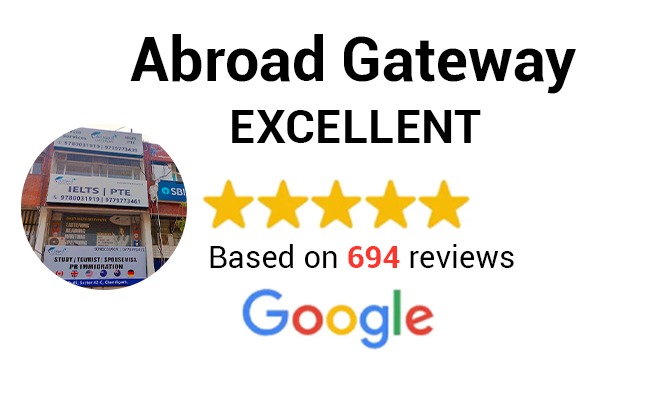Canada is a leading destination for those looking for a bright future abroad, offering excellent healthcare, high-quality education, and outstanding career prospects. Among the various immigration options, the Express Entry system remains a leading route to achieve permanent settlement in Canada, designed for skilled professionals.
What is the Express Entry System?
The Express Entry system was launched in 2015 by the Canadian government to speed up and better organise the way skilled worker applications are reviewed. It is an online platform that manages applications for three key economic immigration programs:
1. Canadian Experience Class (CEC)
CEC provides individuals with skilled work experience in Canada who are seeking Permanent Residency (PR). This process is preferred by international graduates who finish their studies in Canada, secure a post-graduate work permit (PGWP), and get relevant work experience.
Eligibility Criteria:
Work experience: To qualify, candidates need a minimum of one year of legal, paid employment in a skilled job in Canada, completed within the last three years. This experience must:
- Be acquired legally while holding temporary resident status (e.g., a post-graduation work permit).
- Fall under a skilled occupation classified in NOC TEER categories 0, 1, 2, or 3.
Eligible NOC TEER categories:
- TEER 0: Management positions (e.g., financial managers, marketing managers)
- TEER 1: Jobs that require a university degree (e.g., software engineers, financial advisors)
- TEER 2: Occupations needing a college diploma plus apprenticeship training (e.g., medical laboratory technicians)
- TEER 3: Roles that require a diploma or extensive on-the-job training (e.g., bakers, dental assistants)
Job Duties: You must prove that you performed all the essential tasks and responsibilities outlined for your occupation in Canada’s National Occupational Classification (NOC).
Language Proficiency: Applicants must take an approved language test—IELTS or CELPIP for English, and TEF or TCF for French—and achieve the minimum Canadian Language Benchmark (CLB) score in Reading, Writing, Listening, and Speaking.
Education requirements: Although formal education is not a requirement for CEC eligibility, providing your academic qualifications can improve your Comprehensive Ranking System (CRS) score in the Express Entry pool.
Admissibility: You must meet Canada’s legal entry requirements, which include:
- having no criminal record
- posing no threat to national security
- meeting the health standards
Intent to Reside Outside Quebec: You must state your aim to settle in any Canadian province or territory other than Quebec, since Quebec has its immigration programs.
2. Federal Skilled Worker Program (FSWP)
FSWP is for skilled professionals with work experience outside Canada who wish to obtain PR. It enables applicants to qualify based on factors such as education, work history, language proficiency, and other criteria, even without prior Canadian work experience.
Eligibility Criteria:
Language Proficiency: You must prove your ability in English or French by completing an approved language test, such as IELTS or CELPIP for English. Minimum required scores must be achieved in all four skills: Reading, Writing, Listening, and Speaking.
Education requirements: You must present valid proof of your educational credentials. For education completed outside Canada, an Educational Credential Assessment (ECA) is required to confirm that your foreign qualification is comparable to Canadian standards.
Work experience: You must have at least one year of continuous, paid, full-time work experience (or the equivalent in part-time) in a skilled occupation within the past 10 years.
- The occupation must fall under NOC TEER categories 1, 2, or 3.
- Work experience gained during studies (such as internships or co-op placements) may be considered if it was paid, continuous, and met all job requirements.
Work hour requirements: You should be able to show:
- at least 1,560 hours of skilled work experience, which equals about one year of full-time work, or
- the same number of hours through part-time roles.
Proof of funds: Applicants are required to show evidence of sufficient savings or financial resources to cover living expenses after arriving in Canada.
3. Federal Skilled Trades Program (FSTP)
The FSTP is intended for experienced tradespeople who wish to become permanent residents of Canada.It is particularly suited for trades’ professionals such as chefs, bakers, electricians, plumbers, and similar occupations who meet the necessary work experience and certification requirements.
Eligibility Criteria:
Work experience: At least two years of full-time (or equivalent part-time) work experience in a skilled trade within the past five years. This experience must:
- Correspond to a trade listed under NOC TEER 2 or 3 categories.
- Include performing all essential duties for that trade.
Trade certification or job offer: You must either:
- Hold a certificate of qualification for your trade issued by a Canadian province or territory (following assessment by the relevant regulatory body), or
- Have a valid Canadian job offer for full-time work in that trade lasting at least one year.
Language Proficiency: Meet the minimum Canadian Language Benchmark (CLB) scores:
- Speaking and Listening – CLB 5
- Reading and Writing – CLB 4
- Scores must be from an approved test, such as IELTS or CELPIP.
Education requirements: Education is not mandatory for FSTP eligibility; however, submitting your academic credentials—along with an ECA for foreign education—can help improve your CRS score in the Express Entry pool.
Proof of funds & admissibility:
- Show sufficient settlement funds (unless you are currently working in Canada or have a valid job offer).
- Be legally admissible to Canada, including passing medical and criminal background checks.
Intent to reside outside Quebec: Express your plan to live in a province or territory other than Quebec, as Quebec has its skilled worker program.
Note: Several Provincial Nominee Programs (PNPs) are linked to Express Entry, offering additional pathways for eligibility.
Step-by-Step Guide to Getting PR in Canada through the Express Entry System
1. Check Your Eligibility: First of all, confirm that you meet the minimum requirements for age, education, work experience, language proficiency (English/French), and proof of funds. Use the Comprehensive Ranking System (CRS) tool to evaluate your eligibility.
2. Take a language exam in English or French: Approved language tests include: IELTS or CELPIP for English AND TEF or TCF for French. Achieving higher scores can substantially increase your CRS points.
3. Get an Educational Credential Assessment (ECA): If your education was completed outside Canada, an ECA is required to verify that your credentials are equivalent to Canadian standards.
4. Create Your Express Entry Profile: Once you meet the eligibility criteria, register on the IRCC website and create your profile. Enter details such as your language scores, educational background, and work history.
5. Improve Your CRS Score (If Needed): If your score is below the competitive range:
- Retake the language test for a higher score
- Apply through a Provincial Nominee Program (PNP)
- Secure a valid Canadian job offer
- Gain additional education or work experience
6. Receive an Invitation to Apply (ITA): If your CRS score meets or exceeds the draw cut-off, you will get an ITA. You then have 60 days to submit a complete PR application.
7. Submit Your PR Application: Provide all required documents, including police clearance certificates, medical examination results, proof of funds, and other supporting records. Processing typically takes about six months.
8. Get Confirmation of Permanent Residence (COPR): Upon approval, you will receive your COPR, enabling you to make your plans to move and settle in Canada.
Common Reasons for PR Application Rejection
Some frequent causes of PR refusals include:
- Submitting false or incomplete information
- Providing insufficient documentation
- Failing the medical or security background check
- Not meeting the program’s specific rules
Tip: To avoid these issues, consider working with a reputable PR visa consultant.
Tips to increase your chances of PR approval
- Gather documentation early.
- Higher scores in IELTS or CELPIP.
- Research and apply for Provincial Nominee Programs.
- Documents should be well-organised.
- Get professional guidance from an experienced PR visa consultant, like Abroad Gateway.
Ready to Start Your Canadian PR Journey?
Don’t leave your dream to chance. Let the experts at Abroad Gateway guide you through every step with accuracy and confidence.
Our services include:
- CRS score evaluation
- IELTS preparation
- Profile setup and document preparation
- Guidance in selecting the right PNP
- End-to-end support until you receive your COPR
Contact us to get your FREE consultation today!






